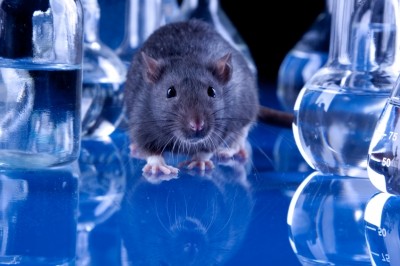ATP supplement may boost performance, energy expenditure: Study

ATP (adenosine-triphosphate) is the energy source for tissues, but it also has also been proposed to have functions beyond energy.
New data published in the Journal of Strength & Conditioning Research indicated that a single 400 mg dose of adenosine-5’-triphosphate disodium increased performance and oxygen consumption during lower body resistance exercise in recreationally trained men, compared to placebo.
The study is reportedly the first to investigate the effects of acute oral ATP supplementation during lower-body resistance exercise. The study used a commercial product from ProMera, which contains TSI's PeakATP, but neither company was involved in the study.
Commenting on the practical applications of their research, the researchers wrote: “This study suggests that resistance-training practitioners can supplement ATP prior to a fatiguing, high volume lower body resistance exercise session to enhance total weight lifted and energy expenditure. Additionally, the dose and form of ATP supplementation (400 mg) was well tolerated in this study.”
The study was performed by researchers from São Paulo State University (Brazil), Coastal Carolina University (USA), the Federal University of São Paulo (Brazil), the University São Judas Tadeu (Brazil), and the Federal University of Piauí (Brazil).
‘Statistically significant and of practical relevance’
Commenting independently on the new study, Dr Ralf Jaeger from Milwaukee-based Increnovo, told NutraIngredients-USA: “Just one-time ATP supplementation 30 minutes prior to exercise increased maximal leg workout volume by 24%. The improvement is not just statistically significant, but also large enough to be of practical relevance.
“Training volume correlates to training adaptation and the result of this acute study confirms previously observed increases in strength and size gains in chronic supplementation and training studies (Wilson et al., Nutr Metab., 2013, 10:57). ATP significantly increased oxygen consumption and heart rate during exercise, most likely due to the increase in training volume/number of reps.”
Dr Jaeger continued: “The fact that ATP works acutely, in contrast to other sports nutrition ingredients like creatine, or beta-alanine, makes ATP the ideal candidate for pre-workout products that want to not just deliver the stimulant effect of caffeine, but deliver a real performance benefit to consumers. Increasing fatigue resistance seems to be the main mechanism how ATP allows active people to train harder and longer during their workouts.
“ATP has previously been shown to increase exercise-induced increases in blood flow (Jaeger et al.. JISSN. 2014, 11:28) and prevent the exercise-induced drops in ATP levels (Purpura et al. J Am Coll Nutr. 2017, Vol. 12, pp.1-7).”
Study details
The researchers recruited 11 recreationally trained men with an average age of 27.5 and randomly assigned them to consume either a single dose of ATP or a placebo 30 minutes prior to performing four sets of half-squats until acute muscle exhaustion (momentary muscular failure).
Results showed that ATP consumption was associated with significantly great weight lifting compared to placebo (ATP = 4967 kg versus placebo = 3,996 kg).
In addition, the heart rate was significantly faster in the ATP group at set-4, compared to placebo, while the ATP group also exhibited greater oxygen consumption during exercise.
On the other hand, no significant differences between the groups were observed for lactate and blood pressure, said the researchers.
Mechanism(s) of action
Commenting on the potential mechanism of action, the researchers stated: “Extracellular ATP can modulate the contractility of skeletal muscle by binding to P2X4 receptor and increasing intracellular calcium influx. Therefore, it is possible that ATP supplementation may delay the reduction of calcium release during muscle contractions, maximizing muscle strength production by greater interactions of actin and myosin filaments; however, further research is needed to investigate this hypothesis.”
They also noted that another potential mechanism of action involves an effect of ATP on vascular tissue. “We found that ATP supplementation increased oxygen uptake during resistance exercise. It is possible that the vasodilatory effects of ATP may have enhanced oxygen delivery to the working tissues thereby resulting in the improved performance observed in this study,” they wrote.
“In conclusion, a single dose of ATP supplementation improved performance, oxygen consumption and energy expenditure during lower body resistance exercise in recreational resistance trained males.”
Source: Journal of Strength & Conditioning Research
Published online ahead of print, doi: 10.1519/JSC.0000000000002198
“A Single Dose Of Oral Atp Supplementation Improves Performance And Physiological Response During Lower Body Resistance Exercise In Recreational Resistance Trained Males”
Authors: M.C. Freitas et al.














